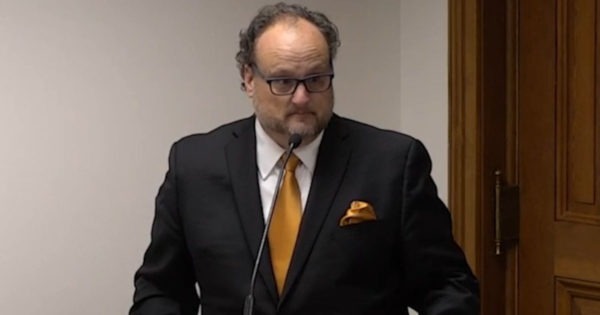
Inventor and Stanford researcher Jovan Pulitzer appeared in front of the Georgia Senate on Wednesday afternoon and revealed that he has gained access in real time to a voting machine and polling pad in Fulton County, Georgia through a WiFi connection as Georgia residents cast votes in the state’s U.S. Senate runoff election.
“At this very moment at a polling location in the county, not only do we have access through the devices to the poll pad – the system, but we are in,” Pulitzer said. “And it’s not supposed to have WiFi, and that’s not supposed to be able to happen. So we’ve documented now it’s communicating two ways in real time, meaning it’s receiving data and sending data – should never happen, shouldn’t be WiFi, we’ve now documented it in real time.”
“That’s going on right there where everybody’s voting, and I just want to get it into the record,” Pulitzer added, referencing the Senate runoff election.
GEORGIA: An IT expert and Stanford researcher testified that white hat hackers have penetrated Georgia voting machines.
If this were done on election day, it could change votes.
None of this is supposed to be possible! pic.twitter.com/GUQxYgAQ8Z
— National File (@NationalFile) December 30, 2020
When asked by state senators about the exact nature of the hack, Pulitzer responded, “This is coming through the polling pad device where they’re checking everything, but now it only takes one device where you daisy chain them together and do it. The most important thing that shouldn’t be two-waying, and shouldn’t even be accessible or on, and it’s there.”
“Statistically, what can be going on, when you have an operation like this, is as that data is being exchanged and somebody’s in it, [someone] can actually siphon off that data, modify the data, and then feed it right back into the system, or kind of do a pump and dump in real time,” Pulitzer stated.
In his testimony, Pulitzer – who has published 65 academic papers – debunked media claims that hacking into voting machines for the purpose of manipulating votes is impossible, and exposes gaping flaws in the narrative of “fact-checkers” who insist that no voter fraud could have occurred during the 2020 presidential election.